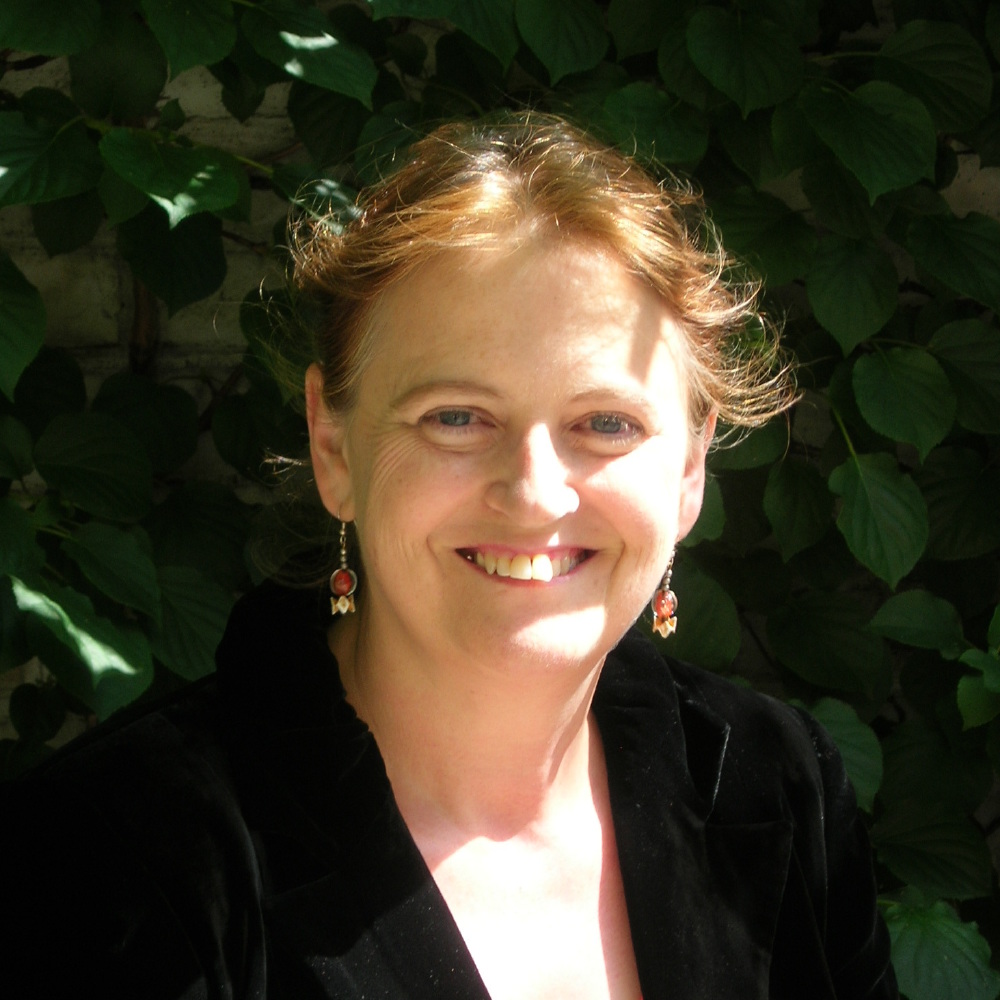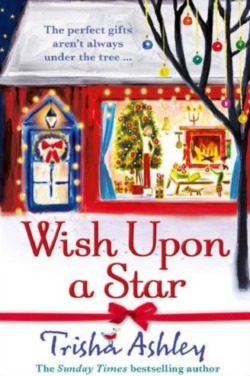
Trisha Ashley

In Wish Upon a Star Cally is a single mum with a life that revolves around her little girl, Stella, who was born with serious health problems. When Stella’s condition suddenly worsens, she sells up her London flat and they move to the village of Sticklepond in West Lancashire to live with her mother, while Cally tries to raise enough money to take Stella to America for a potentially life-saving operation.
Cally only realises quite how tough shouldering everything alone has been when all the villagers - and especially laid-back and charming baker Jago - rally round to help. All Cally wants for Christmas is a miracle to save Stella and the story is very much about following your star wherever it may lead and however tough the going might be, with hope in your heart.
What is the appeal of the contemporary romantic comedy for you?
I think because it is contemporary, so I can write about topics that interest me and which appear to strike a chord with readers. I’m often surprised at reviews that describe my books as ‘a light frothy read’ because all of them also contain the darker strands that can affect women’s lives, such as miscarriage, divorce, breast cancer, infertility… For example, in The Twelve Days of Christmas, at the start of the book the heroine is struggling to come to terms with feelings of grief and anger at her husband’s accidental death.
And as to comedy, I’ve never actually tried to write a funny novel – I just write. I don’t do jokes, slapstick or pratfall scenes; I don’t play it for laughs. But I think if the humour is in you, it just appears in the writing like invisible ink held over a flame.
What is so crucial about the Lancashire sense of humour in your books?
There’s a sort of natural drollness, wit, warmth and friendliness among Lancashire folk and a dark sense of humour in adversity – they tend to joke their way through even the direst situations.
Why is your Celtic creativity from your grandmother an essential ingredient?
I’ve always felt connected to North Wales, with its rich heritage of history and legends and proud of the Celtic strand that is woven through me. The Mabinogion, a collection of Welsh stories from medieval times, which have their roots in much earlier oral history, made a great impression on me at a young age.
Why did you decide to set six of your novels in West Lancashire?
Six of my novels are set in West Lancashire, though only four of them in the same village. I have created a whole new borough stretching from the sea above Southport to the beacon hills to the east.
I didn’t set out to write any kind of series, so the novels all stand alone, but by now there are quite a lot of overlapping references to characters, places and events, so people often want to read them in order.
I like to write about areas I know well, so my first romantic comedy, Good Husband Material, was set in Bedfordshire, where I was living at the time and Every Woman for Herself in West Yorkshire, which I moved to. I haven’t yet written a novel set up in the North East near Durham, where I spent a few years after that, but I expect I will eventually. Wales and Lancashire are easy to write about, of course, because I know the people, the old legends and traditions, so there’s a lot to instantly spark the imagination.
Why do you like to explore the themes of food, flowers and friendship in your books?
These are all things that are necessary to me, the comforts of life… and there certainly is rather a lot about food in my books! All the research has taken its toll on my figure over the years – but then, I’m always prepared to suffer for my art. I started to add recipes at the backs of my books because readers wanted to try cooking some of the things I mentioned and wrote asking me for them. I’ve had no training in cookery, just collected a fat notebook of recipes and variations I’ve tried over the years, so none of it is difficult.
I adore visiting gardens, especially those with roses, mazes or knot gardens. A few years ago I spent my Sundays in a little wooden hut at the entrance to the lovely Bodnant Garden in north Wales, selling tickets and guidebooks just at the time when a new young head gardener, Troy Scott Smith, had taken over and was beginning to revitalise it, which was very inspiring.
My novels reveal the enduring power of good friendships and the supporting love of families (however dysfunctional they may at first appear) because these have been – and still are – of great importance in my own life. Elements of my interests and experiences are woven into all my novels, of course, but like most writers I tend to use turning points and situations in my own life as jumping off points to explore new directions my characters can take – because after all, they’re not me and they would do things very differently. They constantly surprise me.
But all of life’s experiences, good or bad, can be composted down and used to grow something fresh and new: for a novelist, nothing need be wasted. We are the ultimate recyclers.
The book has been compared to Jill Mansell and Katie Fforde, so how does this make you feel?
It’s a great honour to be in such illustrious company!
Why is it important to read something festive at Christmas time and who do you like to read in the winter months?
As Christmas approaches, or over the holiday itself, many people seem to enjoy reading a book with a Christmas theme. I’m very honoured by those who tell me that reading mine – especially Twelve Days of Christmas - has now become one of their own Christmas traditions.
My winter reading is much the same as at any other time and I read very widely, but I do try and buy a fat new novel to read over Christmas, once the preparations are complete. But a couple of years ago I discovered the American novelist Fannie Flagg and now I read The Redbird Christmas every year – that’s my new tradition.
What is Christmas like in your house?
Christmas is quiet and laidback and I don’t decorate the house until well into December, though I make the Christmas cake in November. Our tree is the same sparkly gold one my son fell in love with at a garden centre when he was about two and is topped with a papier mache Santa over ninety years old that my mother’s eldest sister bought when she was a little girl.
On the whole, we’ve forged our own way of doing things, a mix of old and new traditions. For instance, we have roast duck on Christmas Day, because we like it better than turkey, and usually profiteroles for dessert, saving the Christmas pudding for Boxing Day. We watch lots of Christmas films, play board games, take the dog for walks and generally chill out.
What is next for you?
I’m currently writing the next book – I always seem to be writing Christmas books in summer, and summer books in winter - and next spring Avon HarperCollins will be producing a new edition of one of my long-out-of-print novels, Every Woman for Herself. It’s set in Yorkshire, where the Rhymer family, Emily, Charlotte, Anne and Branwell (the result of a misguided and failed attempt by their father to recreate the Bronte family) slowly return home, one by one, to the haven of Upvale – only to find that things are about to change, forever.
Every Woman for Herself was voted by readers one of the three best romantic novels of the last fifty years, which was a truly wonderful moment, and I’m constantly being asked where a copy can be found, so I’m delighted it will soon be easily available again.

